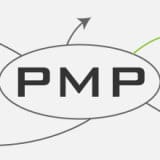PMI-ACP Study Notes: Agile Coaching

[PMI-ACP® Exam Study Notes] Unlike the role of project managers in traditional waterfall project management, Agile managers (e.g. ScrumMaster, Coach, etc.) have the primary role of helping team members to embrace Agile principles and removing obstacles. Ideally, Agile teams are self-organized and self-managing. Agile coaching is therefore an important function for the smooth running of Agile projects.
Article Highlights
Agile Coaching and Mentoring
In Agile projects, management has the key role of ensuring self-organization and self-managing of the Agile team happen. The Agile manager, on one hand, needs to shield the team from external pressures and interference; on the other hand, support the project team to implement Agile principles.
- Agile Concepts and Meetings
- Daily Stand-ups – a 15-minutes time-boxed meeting attended by the team members to catch up on the progress for the iteration by focusing on the following 3 questions:
- What has been done yesterday?
- What are planned for today?
- Any roadblocks or impediments?
- Iteration Review – to demonstrate the deliverables of the iteration to the customer and other stakeholders
- Iteration Retrospectives – for the team members only, to review what internal processes could be improved for the next iteration, not to finger point or find faults
- Process Tailoring – processes should add values to the project, all the Agile processes can be tailored to fit the particular needs of a project
- Team Motivation – including support, team participation, ground rules and team performance visibility
- Daily Stand-ups – a 15-minutes time-boxed meeting attended by the team members to catch up on the progress for the iteration by focusing on the following 3 questions:
Soft Skills Negotiation
- Emotional Intelligence – people with high E.I. can relate to people, deal with people issues effectively and gain support from other
- According to Higgs & Dulewicz, emotional intelligence includes seven components
- Self-awareness
- Emotional resilience
- Motivation
- Interpersonal sensitivity
- Influence
- Intuitiveness
- Conscientiousness
- According to Higgs & Dulewicz, emotional intelligence includes seven components
- Collaboration – everything about Agile should encourage collaboration, including communication, co-location, self-organization, decision making, etc., collaboration is integral to Agile projects
- Negotiation – negotiation is an important activity for Agile which yields productive results; plan, schedule, features, changes, etc. are negotiable
- Active Listening – active listening includes: listening, understanding, retaining and actively responding, can reduce conflicts within the team
- Conflict Resolution – conflict should be resolved by searching for a “win-win” solution through active listening and communication
- Servant Leadership – Leaders for Agile projects should practice servant leadership, they are not in the command and control position but rather be a servant to enable the team to perform well and model the right behavior
- Adaptive Leadership – the leader adapts to the environment to lead effectively, i.e. to focus on value-adding activities and discard wastes
- Highsmith defines adaptive leadership as “being Agile” and “doing Agile”
- Being Agile: focusing on cornerstones of agile project management, like incremental delivery, continuous integration, and adapting to changing requirements
- Doing Agile: do less; speed-to-value, quality, and engage and inspire
- Highsmith defines adaptive leadership as “being Agile” and “doing Agile”
Summary
This piece of PMI-ACP® Exam study notes describes the knowledge and skills required by Agile team leaders to perform coaching and mentoring with a view to enhance the efficiency of the Agile team and removing any roadblocks. Tools and techniques for Agile coaching are also covered.
Most Popular PMI-ACP Certification Articles
- Top 10 Tips to Prepare for the exam (I got all Proficient in my exam)
- How to Get 21 Contact Hours?
- Over 600+ FREE Quality Mock Exam / Practice Questions





 Hi, my name is Edward Chung, PMP, PMI-ACP®, ITIL® Foundation. Like most of us, I am a working professional pursuing career advancements through Certifications. As I am having a full-time job and a family with 3 kids, I need to pursue professional certifications in the most effective way (i.e. with the least amount of time). I share my exam tips here in the hope of helping fellow Certification aspirants!
Hi, my name is Edward Chung, PMP, PMI-ACP®, ITIL® Foundation. Like most of us, I am a working professional pursuing career advancements through Certifications. As I am having a full-time job and a family with 3 kids, I need to pursue professional certifications in the most effective way (i.e. with the least amount of time). I share my exam tips here in the hope of helping fellow Certification aspirants!





